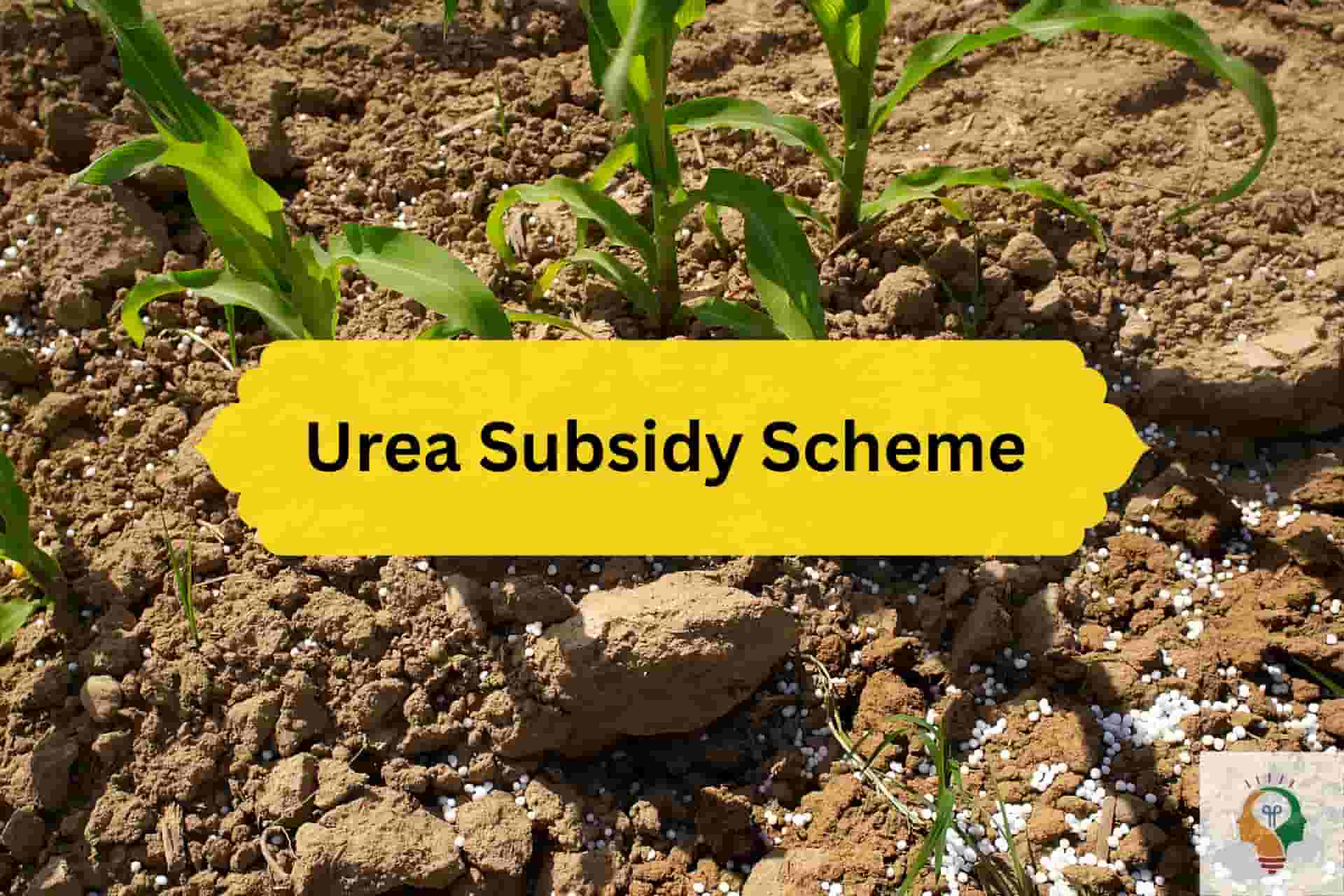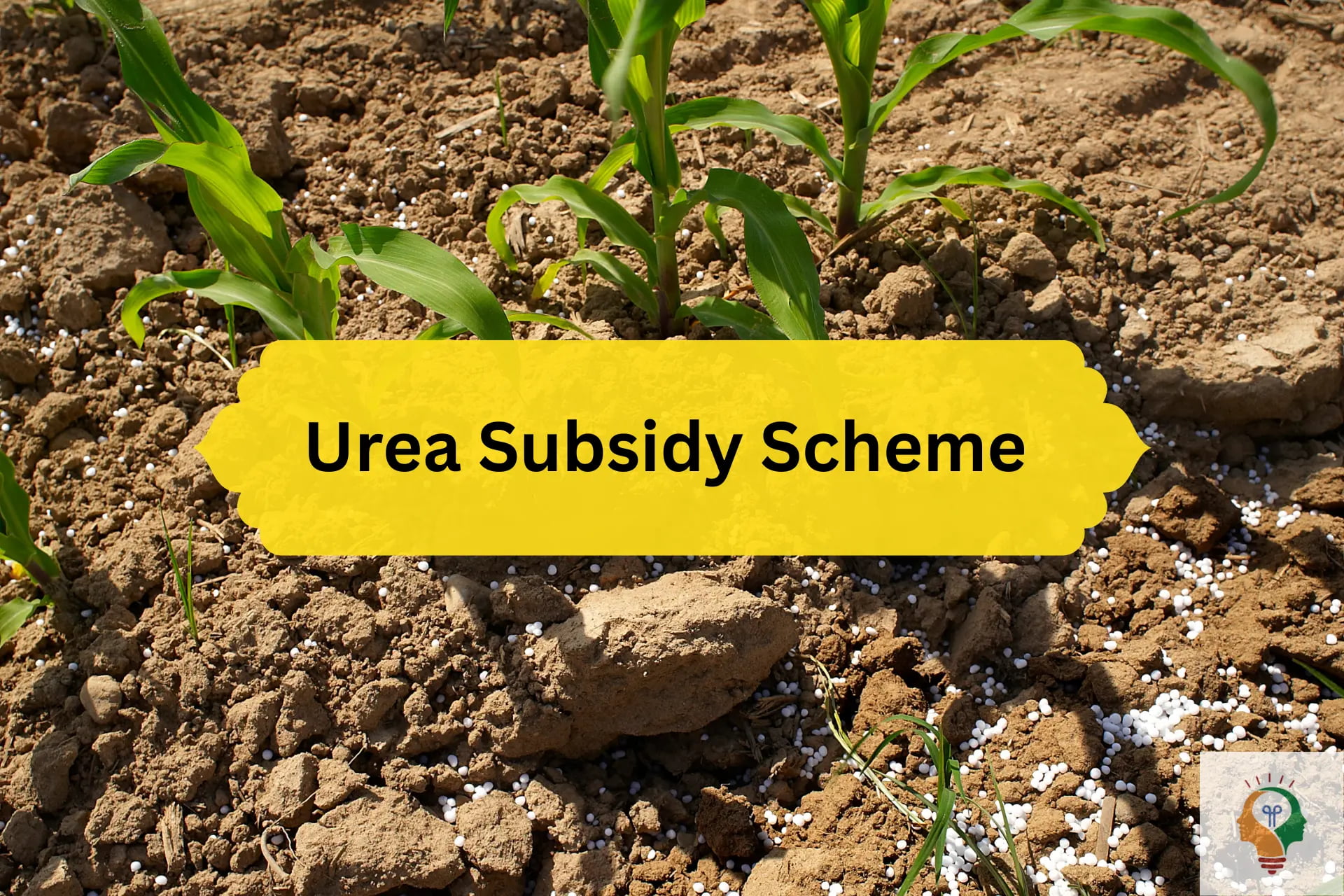What Is The Urea Subsidy Scheme: Benefits And Future Of The Farming
Updated: 18-11-2025 at 8:30 AM
1k


One of the major components of the agriculture sector is the kind of fertiliser used as the land’s productivity is based on it. However, effective and nature-friendly fertiliser is expensive. This led the government of India to introduce a program called the Urea Subsidy Scheme. It is a government subsidy on urea to ensure sustainable agriculture and improve the lives of many farmers in this vast country.
In this article, you will get detailed information about the Urea Subsidy Scheme, its features, benefits, need, documents required, and much more, including details on the Urea Subsidy Scheme launch date and urea subsidy per bag.
Overview
The table below showcases the key insights of the Urea Subsidy Scheme. Read the table below to understand it better:-
| Name of the scheme | Urea Subsidy Scheme |
|---|---|
| Objective | To make urea affordable for farmers and improve agricultural productivity |
| Subsidy provider | Ministry of Chemicals and Fertilisers |
| Eligibility | Farmers across India |
| Amount of the subsidy | MRP of urea is set at ₹242 per bag (Urea subsidy per bag is adjusted by the government) |
| Subsidy coverage | The subsidy covers the difference between production cost and the fixed retail price |
Read More: List Of Top Agriculture Schemes In India 2024 - With Features & Eligibility
What Is The Urea Subsidy Scheme?
As India’s largest employer and accounting for 17.8 per cent of the domestic production, the agricultural sector is indeed an important factor in the country's economic development. In a country that has more than 1.38 billion people to feed, ensuring food supply for the growing population is a task that the government is struggling with. To address this, the government launched the Urea Subsidy Scheme, which offers a specific urea subsidy amount to production enterprises, enabling them to sell fertilisers at a lower price to farmers.
The Urea Subsidy Scheme in India aims to ensure farmers' affordability and availability of urea. Under this Sakari Yojana, financial assistance to urea production enterprises is provided, allowing them to sell fertiliser to farmers at a low price.
The Urea Subsidy Scheme's primary goal is to support agricultural productivity to ensure food supply. These benefits not only ensure that the price of urea remains low for farmers but also encourage fertiliser companies to keep an unceasing supply and sales network available.
Features Of The Urea Subsidy Scheme
The Urea Subsidy Scheme has several features that outline the scheme’s goals. Some of the key features of the scheme are:
-
Affordable pricing: Urea is sold at a fixed price of ₹242 per 45 kg bag, with the urea subsidy per bag ensuring minimal burden on farmers.
-
Promotion of Neem-coated Urea: The Urea Subsidy encourages environmentally-friendly fertilisers such as neem-coated urea.
-
Subsidy difference: The urea subsidy amount covers the gap between production cost and sale price, ensuring companies can maintain supply without losses.
-
Sustainability: The Urea Subsidy promotes balanced fertiliser use to maintain soil health and support sustainable agricultural practices.
Why Is There A Need For The Urea Subsidy Scheme?
Due to the changing geopolitical situation and increased prices of raw materials, the prices of fertilisers have increased globally in recent years.
Also, over 86.1 per cent of Indian farmers hold less than 2 hectares of land, the bulk of which is up to 0.90 hectares. This underscores the importance of cheap and good-quality inputs for farmers—fertilisers in particular. The urea bag price without subsidy would otherwise be too high for small and marginal farmers.
Urea, a nitrogenous fertiliser, is an indispensable part of the growth of various crops, such as food grains (rice, wheat) and cash crops (sugarcane). The current data suggests that India has a urea demand of about 360 lakh metric tonnes every year.
To encourage domestic urea manufacturing, the government initiated multiple measures to reduce imports in this space, resulting in several companies shifting their focus to this space.
Read More: Soil Health Cards & Policy: RKVY, Fertility, Agriculture & Farmer Scheme
What Are The Benefits Of The Urea Subsidy Scheme?
There are many benefits of the Urea Subsidy Scheme, for which the major ones are listed below:-
-
Boosted Agricultural Output: Domestic production and the long-term supply of urea have increased, helping to fill the nutrient-deficient soil for high-yield agriculture, thereby enhancing agricultural productivity and grain output, thus providing an impact on the overall food security in the country. Also, the urea subsidy amount supports nutrient-rich soil, improving crop yield and food security.
-
Current welfare of the farmers: The subsidy on urea has provided much-needed monetary relief to the farmers, and they were able to redirect their money into other primary inputs, which propped up their general profitability as well.
-
Balanced Application of Fertilisers: The government scheme on urea will encourage the farmers to adopt integrated nutrient management practices by reducing the usage of chemical fertilisers and fertilisers or organic manure, mainly for reducing the load on soil.
-
Rampant Domestic Production: The government’s urea subsidy per bag support has helped revive urea plants and reduce imports, ensuring self-reliance.
Read More: Ayushman Card
How to apply For The Urea Subsidy Scheme?
Farmers who wish to benefit from the Urea Subsidy Scheme can easily apply through both online and offline methods. The application process ensures that eligible farmers receive affordable urea for their crops without any middleman interference.
Follow the steps below to apply:
Step 1: Visit the official website of the Department of Fertilisers or the Ministry of Chemicals and Fertilisers.
Step 2: Go to the Scheme Section and select “Urea Subsidy Scheme”.
Step 3: Read the eligibility criteria and application guidelines carefully.
Step 4: Fill out the application form with accurate details such as your name, landholding size, and Aadhaar-linked bank details.
Step 5: Upload the required documents as listed below.
Step 6: Submit the form online or at the nearest agriculture department office in your district.
Step 7: Once verified, farmers receive confirmation of registration and subsidy benefits as per the approved urea subsidy amount.
Documents Required For The Urea Subsidy Scheme
Applicants must submit a few essential documents to complete the registration successfully. These documents help verify the farmer’s identity and eligibility under the subsidy program.
The required documents are:
-
Aadhaar Card (for identification proof)
-
Land ownership documents or Khasra/Khatauni details
-
Farmer’s bank passbook (for subsidy transfer)
-
Passport-size photograph
-
Mobile number and email ID for communication
-
PAN card (if applicable)
Challenges With The Urea Subsidy Scheme
The following are the main challenges of the Urea Subsidy Scheme. Read the pointers below to understand it better:-
-
High fiscal burden on the government due to the rising urea subsidy amount.
-
It is the second largest subsidy after the food subsidy, thus having an impact on the country’s finances.
-
The unbalanced use of fertilisers has negative impacts on the environment, such as soil degradation and nutrient runoff, which affects the long-term sustainability of agriculture.
-
A subsidy scheme for urea makes it vulnerable to black marketing of urea.
-
The introduction of a uniform subsidy system for urea can eliminate the need for regional differences that can lead to sub-optimal nutrient applications, price volatility and productivity losses.
Read More: Ration Card
Conclusion
The Urea Subsidy Scheme launch date has been a cornerstone in India’s agricultural support system. It helps ensure that farmers receive quality fertilisers at affordable rates, despite the actual urea bag price without subsidy being much higher. This initiative not only improves productivity but also uplifts farmers' livelihoods.
You can also reach out to Jaagruk Bharat through their community page with any questions that you might come across.
Frequently Asked Questions
0
0
1k
0
0
1k Views
0
No comments available





Our Company
Home
About
T&C
Privacy Policy
Eula
Disclaimer Policy
Code of Ethics
Contact Us
Careers
Cancellation & Refund Policy
Categories
Women
Insurance
Finance
Tax
Travel
Transport & Infrastructure
Food
Entertainment
Communication
Government ID Cards
E-commerce
Traffic guidelines
Miscellaneous
Housing and Sanitation
Sports
Startup
Environment and Safety
Education
Agriculture
Social cause
Employment
Disclaimer: Jaagruk Bharat is a private organization offering support for documentation and government scheme access. We are not affiliated with any government body. Official services are available on respective government portals. Our goal is to make processes easier and more accessible for citizens.
All Copyrights are reserved by Jaagruk Bharat